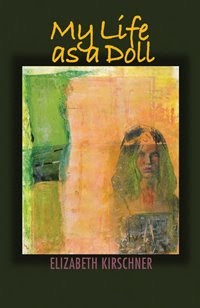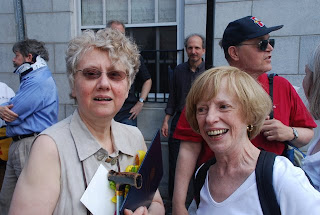
Passing the time with Boston Poet Laureate Sam Cornish.
Doug Holder
Sam Cornish, the Boston Poet Laureate, invited me to his office to chat before participating in another meeting we were involved with later in the day with Boston-area poetry activists. On the subway, on the way to the meeting, I read through a collection of Cornish’s that I picked up at the Grolier Poetry Book Shop some time ago: “Cross A Parted Sea.” Cornish writes about everything from Pullman Porters, sharecroppers, Jackie Robinson, Martin Luther King, his father, etc. He does it with just the right amount of raw energy and the Blues, and his choice of words packs a wallop, or at times a well-appointed sucker punch: Case in point:
Dog Town Slim
Our grandfathers
were
hard as nigger
sweat
writers
that drank
the muddy
waters
of Mississippi
and the Congo
traveled
the world
in books
foot&
fist
through
Dunbar
Douglass
Johnson
And Hughes
no Uncle Toms
but men
on Grand Street
or Lenox Avenue
left bank
or after hours
joint
upside
the heads
of Gentiles
of Crackers
or to Spain
fuck
fascism
and the Krauts
their lives so crazy
that women
wrote
about them made
a music
called the blues.
Sam Cornish’s office is in the back of the audiovisual department in the basement of the Copley Square Branch of the Boston Public Library. Cornish is an affable, warm, and modest man, making him an easy person to talk to and open up to. Cornish, like the former U.S. Poet Laureate Robert Pinsky, is all about community and outreach. From talking with Cornish I got the impression he is not interested in getting more PR for the mandarins of the poetry world. He wants to reach what he calls the “Boston Underground,” which he defines as the community of poets and writers outside the academy. This is a population who publishes little magazines and books, writes for the love of it and are not careerists. He feels that these “holy fools” should get some recognition as well. Cornish wants to address the larger question “Why does poetry matter?” He wants show that poetry is an essential element of society. It is more than foundation grants, book contracts, and plum teaching positions.
Later Dale Patterson (Boston Library Foundation), Harris Gardner (Tapestry of Voices), Lo Galluccio (Poet Activist, Ibbetson Update Book Reviewer, and author),
Joe Bergin (Carpenter Poets), and Kate Finnegan (Kaji Aso Studios) came to discuss the process of getting grants for pet projects of Cornish’s, and other proposed projects by group members. Some interesting ideas were thrown out like: poetry performances at the old Strand Theatre in Dorchester, a small press book fair, readings in coffee shops across the city, thematic cross-cultural readings, paid visiting poets conducting workshops for neighborhood youth, you name it… Dale Patterson, a well-seasoned grant writer, plans to work up a draft proposal that hopefully will wind up in the willing hands of a number of foundations.
It was great to be with these enthusiastic folks who took time out of their very busy lives to volunteer their respective talents in promotion of the word. Sam Cornish is a great laureate, a man of the people, and his hands are on the pulse of the city. When I lived in Brighton years ago I used to see him walking the streets, his inquisitive, searching eyes scanning the city behind thick glasses. Cornish mentioned the book “Walker in the City,” by Alfred Kazin. Kazin was a keen observer, a lover of the ebb and flow of the eclectic, teeming city streets. This is exactly what Cornish is, and what I admire about the man. Cornish has walked the walk and he has earned the right to talk the talk.
I think Boston had the right idea supporting and funding this position. I can only hope that my hometown of Somerville will be infused with the same wisdom and fund a position such as this.
--Doug Holder


























































